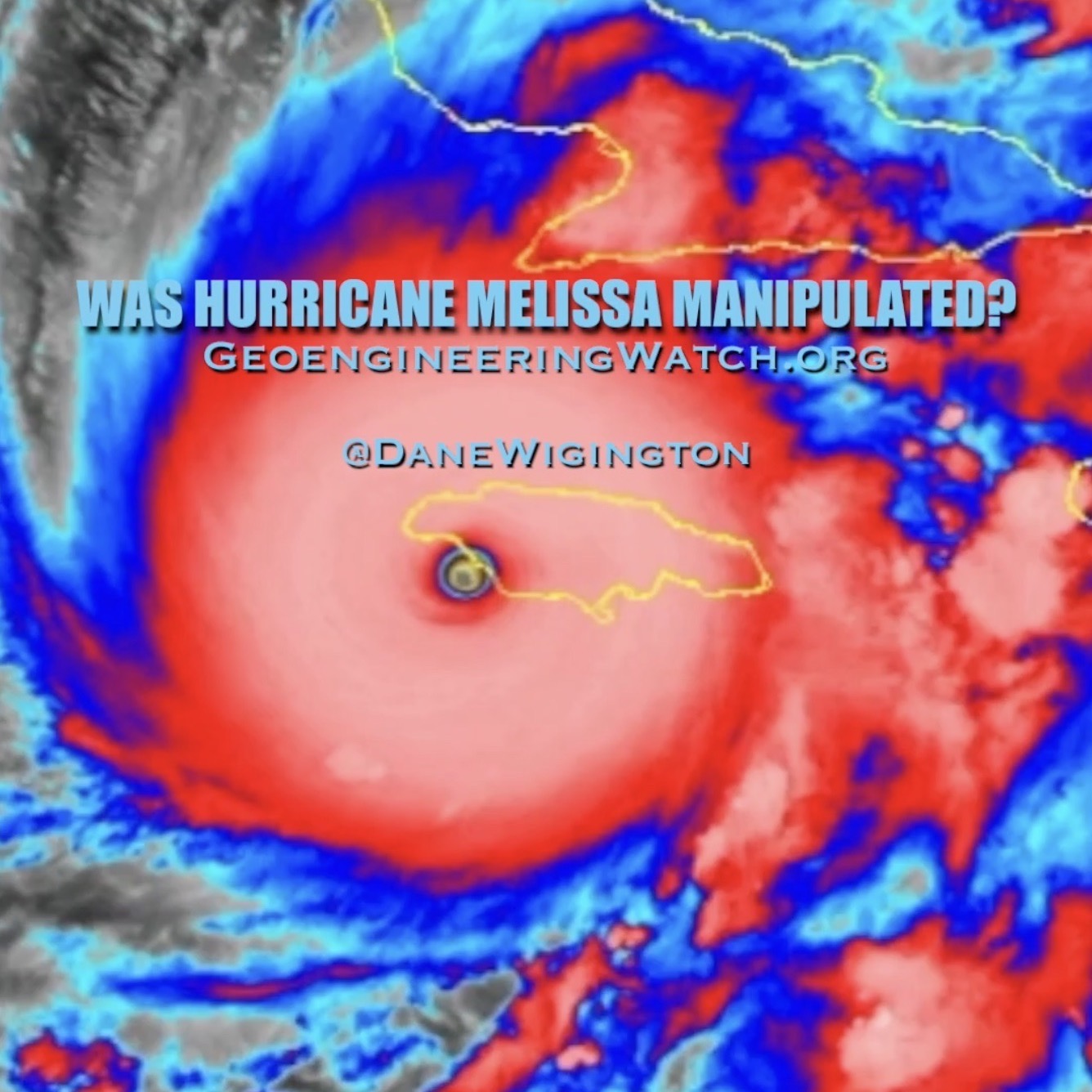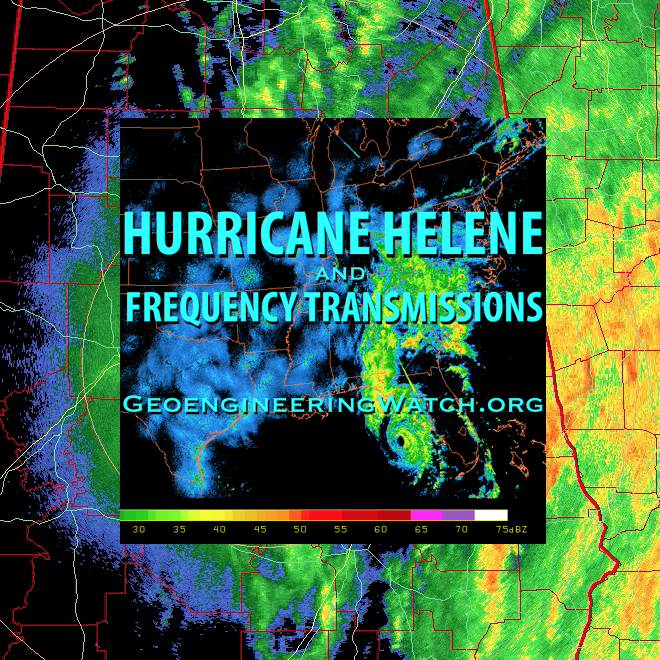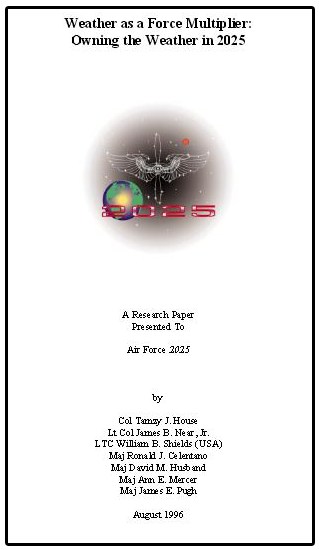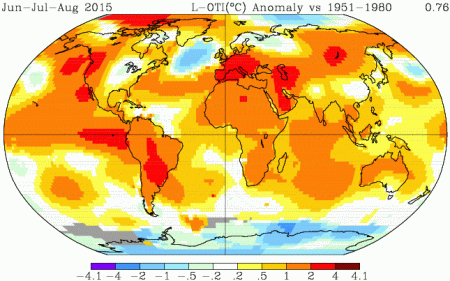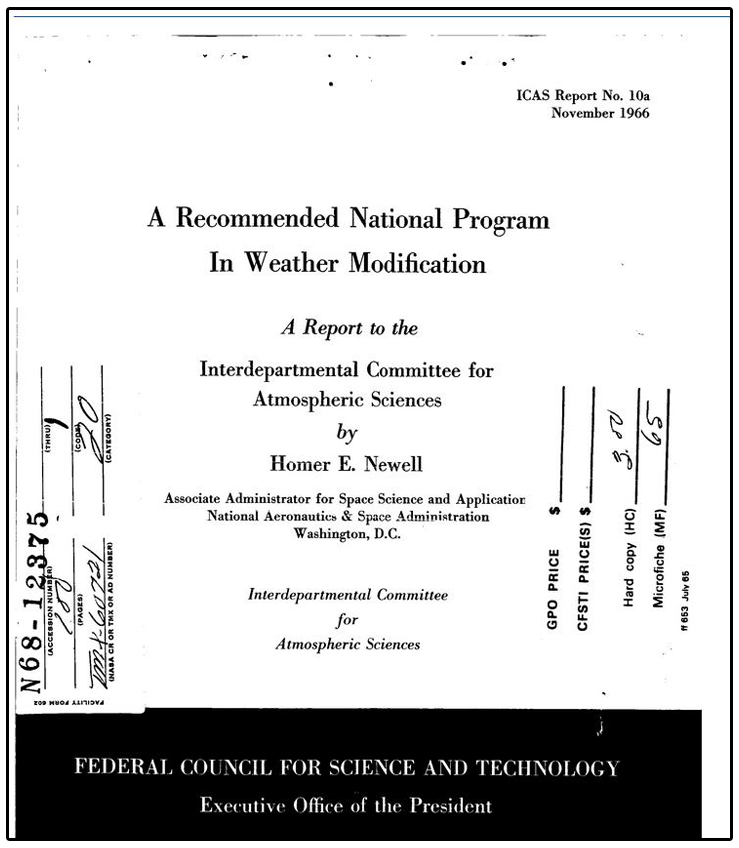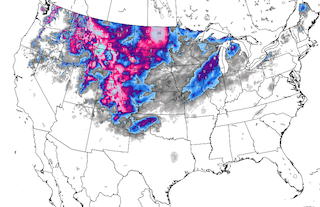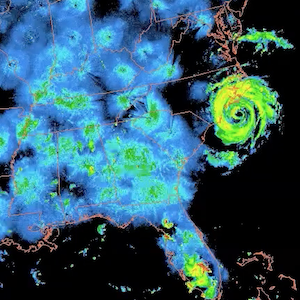Source: Washington Post, article by Jason Samenow
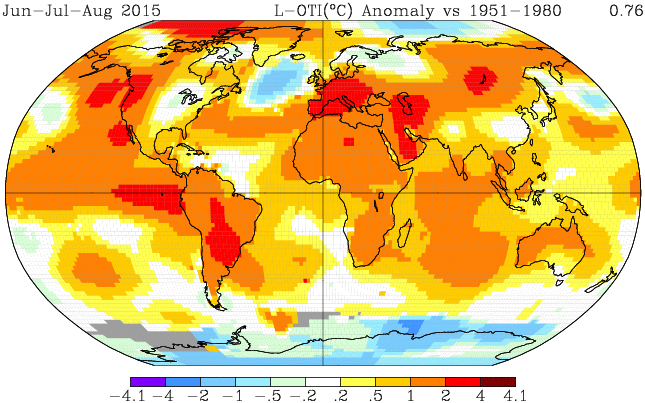
(NASA)
Planet Earth has never, in recorded history, had a hotter summer than 2015, NOAA, NASA, and Japan Meteorological Agency (JMA) data indicate.
Temperatures soared about 1.5 degrees warmer than the long-term average, passing 1998 and 2014, which were the previous hottest summers on record depending on the dataset. These records date back to the late 1800s.
The record summer (using the Northern Hemisphere definition) was comprised of the hottest June, July and August periods in NOAA’s and JMA’s analyses (in NASA’s analysis, June and July were hottest on record, while August was narrowly second hottest, behind 2014).
Six of the first eight months this year have ranked warmest on record according to NOAA (the only exceptions being January and April, which ranked third-warmest).

August’s average global temperature, according to NOAA, was about 1.58 degrees warmer than the 20th century average, surpassing the previous record by 0.16 degrees. “August 2015 tied with January 2007 as the third warmest monthly highest departure from average for any month since record keeping began in 1880,” NOAA said.
Both land and ocean temperatures were warmest on record in August. “Record warmth was observed across much of South America and parts of Africa, the Middle East, Europe, and Asia,” NOAA said.

August global temperature difference from long-term average. (NOAA)
The ocean temperature difference from the long-term average of 1.4 degrees was “nominally” the highest observed in any month, NOAA added. “Large portions of the seven seas … recorded much-warmer-than-average temperatures, with some locations across all oceans experiencing record warmth,” it said.
Year-to-date, 2015 easily ranks as the warmest year and is virtually assured to finish in the top spot.

(NOAA)
“[W]e estimate a 97% probability that 2015 will become the warmest year on record,” several NOAA scientists wrote on its ‘Beyond the Data’ blog. “[T]he historical data suggest it would take a remarkable and abrupt reversal in the NOAAGlobalTemp time series over the remainder of the year to upend 2015’s drive toward record-breaking status. In other words, it appears extremely unlikely that 2015 will lose its commanding lead.”
A strong El Nino event, characterized by much warmer than normal temperatures in the central and eastern tropical Pacific Ocean, is venting large quantities of heat into the atmosphere. Coupled with the pressure from the long-term increase in greenhouse gas concentrations from the burning of fossil fuels, temperatures are soaring to ever-new heights.
The global temperature has been above the 20th century average now for 366 consecutive months – dating back to February, 1985.
(This post, originally published on September 15, was updated based on new data from NOAA on September 17)
Source: Washington Post, article by Jason Samenow

























